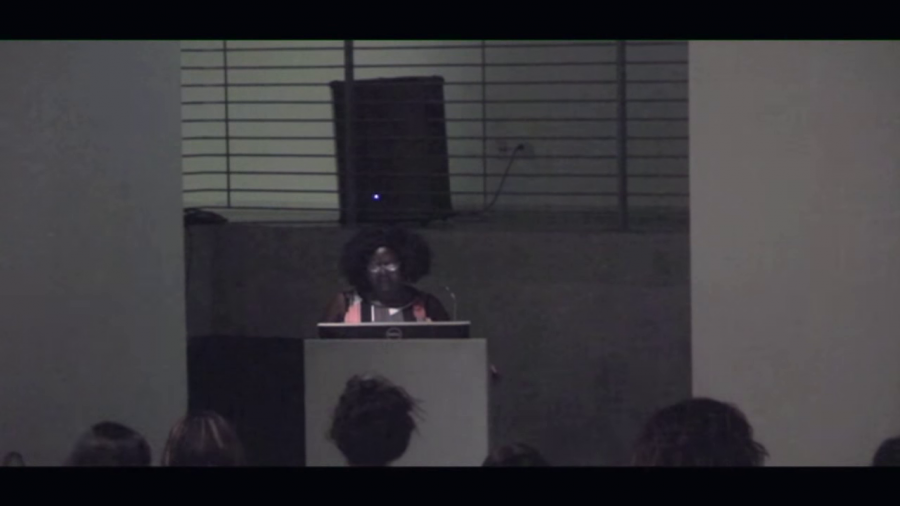Hello, everyone. My name is Brenda Williams and I’m the Assistant to the Chair in Design Media Arts at UCLA. I’d like to welcome everyone to Biased Data, a Panel Discussion on Intersectionality and Internet Ethics. Biased Data was created as a response to inequality and bias in Internet culture and other network technologies. While many academic disciplines acknowledge social inequality in the real world, little work has been done on how these cultural paradigms bleed into online life. The panel will be moderated by Johanna Hedva and Casey Reas.
Casey Reas is an artist and educator based in Los Angeles. He has exhibited, screened, and performed his work in galleries and museums around the world. Reas is a professor at the University of California Los Angeles in the Department of Design Media Arts. He holds a master’s degree from the Massachusetts Institute of Technology in media arts and sciences, as well as a bachelor’s degree from the School of Design, Architecture, Art, and Planning at the University of Cincinnati. With Ben Fry, Reas initiated Processing in 2001.
Johanna Hedva is a writer and artist from Los Angeles. She makes novels, plays, performances, poetry, theory, and criticism in the forms of books and text, with other people in space and time, and/or as visual objects. She got an MFA in Art, and an MA in aesthetics and politics from the California Institute of the Arts. Her work with the Processing Foundation is motivated by her political activism in intersectional feminism, anti white supremacy anti-capitalism, and for the rights of queer, trans, differently-abled, and neuroatypical people from all backgrounds.
Our three panelists tonight are UCLA Information Studies professor Safiya Noble, whose research focuses on the intersection of transnational culture and technology on the Internet, and is currently writing a book about Google and information bias; Informations doctoral studies student Marika Cifor, whose research interests include archives, gender and sexuality, and memory; and we have An Xiao Mina, leader of the production team for Bridge, a platform for social translation of social media, and co-founder of Civic Beat, a research collective focused on the creative side of civic technology.
The panel will examine how real world-biases and inequality are replicated and systematically integrated into neutral algorithms and databases. I’d like to give out a special thanks to the
organizers Hsinyu Lin, Peter Lu, Sofia Staab-Gulbenkian, Lilyan Kris, and Echo Theohar. We’d also like to thank the Department of Design Media Arts at UCLA, the Graduate Student Services Association, and voidLab.
And now, Safiya, will you come to the podium to begin the evening? Thank you.
Further Reference
Biased Data: A Panel Discussion on Intersectionality and Internet Ethics at the Processing Foundation web site.
